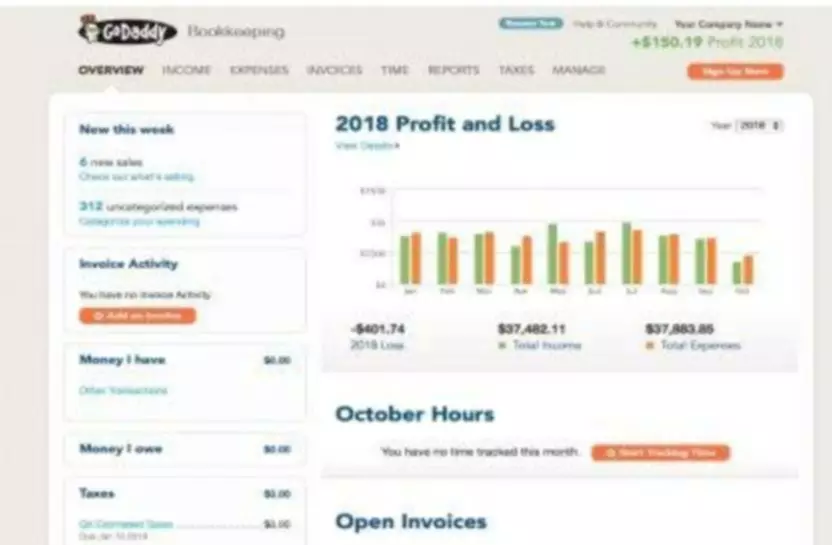Content

The average property tax rate in Massachusetts is 1.14 percent, according to the Tax Foundation.Learn more about property tax in Massachusetts. People who are blind, seniors, surviving spouses and veterans, as well as anyone who claims the Bay State as their primary residence, may qualify for local property tax exemptions. Personal property such as cars and boats are typically taxed locally through excise taxes. Technically, you don’t have just one “tax bracket” – you pay all of the Massachusetts marginal tax rates from the lowest tax bracket to the tax bracket in which you earned your last dollar. For comparison purposes, however, your Massachusetts tax bracket is the tax bracket in which your last earned dollar in any given tax period falls.
In other words, the last dollar that an American earns is taxed more than the first dollar. Bankrate follows a strict editorial policy, so you can trust that we’re putting your interests first. Our award-winning editors and reporters create honest and accurate content to help you make the right financial decisions.
Shop for Services
Enter your filing status on either Form 1 or 1-NR/PY, Line 1, and fill in the appropriate oval. Enter your spouse’s Social Security number in the appropriate space at the top of the return under taxpayer’s Social Security number. If you’re married filing joint, both spouses must sign the return. Estates seeking an extension of time to file and pay the estate tax must still request approval from DOR by filing Form M-4768.

Short-term capital gains, which are realized in less than a year, are taxed at a rate of 12%, as are long-term gains on the sales of collectibles. One high-income tax option now on the table — dubbed the “Fair Share Amendment” — would generate at least $2 billion a year in new, ongoing revenue. If approved by voters in November of 2022, Fair Share would place an additional 4 percent tax on the portion of a filer’s personal income above $1 million a year. Income below $1 million would continue to be taxed at the 5 percent rate currently applied to all income in Massachusetts.
Low-Dollar Supplier Payments
Both companies produce multiple editions for simple to very complex tax returns, so be sure to carefully compare the features offered by each package. The federal government gives tax credits for the cost of buying solar panels for your house and to offset the cost of adopting a child. Americans can also use education tax credits, tax credits for the cost of child care and dependent care and tax credits for having children, to name a few. Our goal is to give you the best advice to help you make smart personal finance decisions.
- Income below $1 million per year would continue to be taxed at the current, 5 percent rate.
- Seven states have a flat income tax, and of those seven Massachusetts has the highest state income tax rate.
- But Guarino expects lower numbers due to tax planning, and in some cases, “leakage” from some higher earners moving out of state.
- Another way of describing the U.S. tax system is by saying that most Americans are charged a marginal tax rate.
- Once you’ve filed your tax return, all you have to do is wait for your refund to arrive.
The MIT payroll system takes this deduction into account when calculating the MA tax amount. Once the Social Security and Medicare year-to-date balances reach $2,000, your effective MA taxes will be slightly higher. We’re transparent about how we are able to bring quality content, competitive rates, and useful tools to you by explaining how we make money. The offers that appear on this site are from companies that compensate us. But this compensation does not influence the information we publish, or the reviews that you see on this site. We do not include the universe of companies or financial offers that may be available to you.
Massachusetts Gas (Motor Fuel) Taxes
Starting next tax season, annual income above $1 million will be taxed at 9 percent.A personal income tax exemption allows a portion of Massachusetts filers’ salary to be deducted from the income tax they owe. Massachusetts relies heavily on the taxation of personal income to fund annual operating expenses, collecting approximately 55% of all tax revenues from this source. The Commonwealth taxes both earned (salaries, wages, tips, commissions) through the withholding tax and investment (interest, dividends, and capital gains) income. The tax rate was lowered to 5% for tax years beginning January 1, 2020, and after. Massachusetts has a flat rate, meaning that all income of the same types must be taxed at the same rate, but different income types can be taxed differently. Massachusetts individual income tax rate is flat, meaning, every resident is taxed the same percentage.
Residents who turned 65 before Jan. 1, 2023, can receive a $700 exemption on top of the state’s personal exemptions. This is per person (not household), so if your spouse turned 65 by Jan. 1, they can also claim the exemption. If you are 65 or older before Jan. 1, 2023, you may be eligible for the Senior Circuit Breaker tax credit, depending on the taxes or rent you paid on your principal residence. Contact your city or town to see if they participate.View tax tips for seniors and retirees in Massachusetts. When calculating your Massachusetts income tax, keep in mind that the Massachusetts state income tax brackets are only applied to your adjusted gross income (AGI) after you have made any qualifying deductions. Income tax deductions are expenses that can be deducted from your gross pre-tax income.
We follow strict guidelines to ensure that our editorial content is not influenced by advertisers. Our editorial team receives no direct compensation from advertisers, and our content is thoroughly fact-checked to ensure accuracy. So, whether you’re reading an article or a review, you can trust that you’re getting credible and dependable information.
How much is income taxed in MA?
Introduction. For tax year 2022, Massachusetts has a 5.0% tax on both earned (salaries, wages, tips, commissions) and unearned (interest, dividends, and capital gains) income. Certain capital gains are taxed at 12%.
Once the extension is granted, the 6-month extension starts at the filing due date of the original return. An extension to file a return doesn’t extend the due date for paying any tax due. In the Bay State, estates are taxed at rates ranging from 0.8 percent to 16 percent, depending on the value of the estate. Florida and https://www.bookstime.com/tax-rates/massachusetts Tennessee residents’ lower tax burdens are due in part to neither state charging state-level income tax, the study noted. If your state tax witholdings are greater then the amount of income tax you owe the state of Massachusetts, you will receive an income tax refund check from the government to make up the difference.
Why do we need new tax revenue in Massachusetts?
Condo owners are also entitled to a credit for repairs done to common areas in addition to the work done in their individual units. Massachusetts allows for other miscellaneous deductions, such as jury duty pay surrendered to your employer, some attorney fees and court costs for unlawful discrimination and other expenses. On the other hand, Massachusetts’ taxes on alcohol are some of the lightest in the U.S.
What income is taxed at 12% in MA?
What is the Massachusetts State Tax Rate? The Massachusetts state tax rate is 5% on earned income (like salaries, commissions, tips, and wages) and unearned (interest, dividends, and certain capital gains) income. (Short term capital gains, collectibles and installment sales initiated before 1996 have a 12% tax rate.)
Applying a higher tax rate to very high incomes would help turn our tax system right side up, while advancing efforts to achieve racial equity in Massachusetts. The targeted, sustained investments made possible with the resulting revenue would have a still larger impact on economic and racial equity throughout the Commonwealth. The new law creates a 4% tax on annual income above $1 million, on top of the state’s current 5% flat income tax, aiming to fund public education, roads, bridges and public transportation. Massachusetts has its own estate tax, which applies to any estate above the exclusion amount of $1 million.


